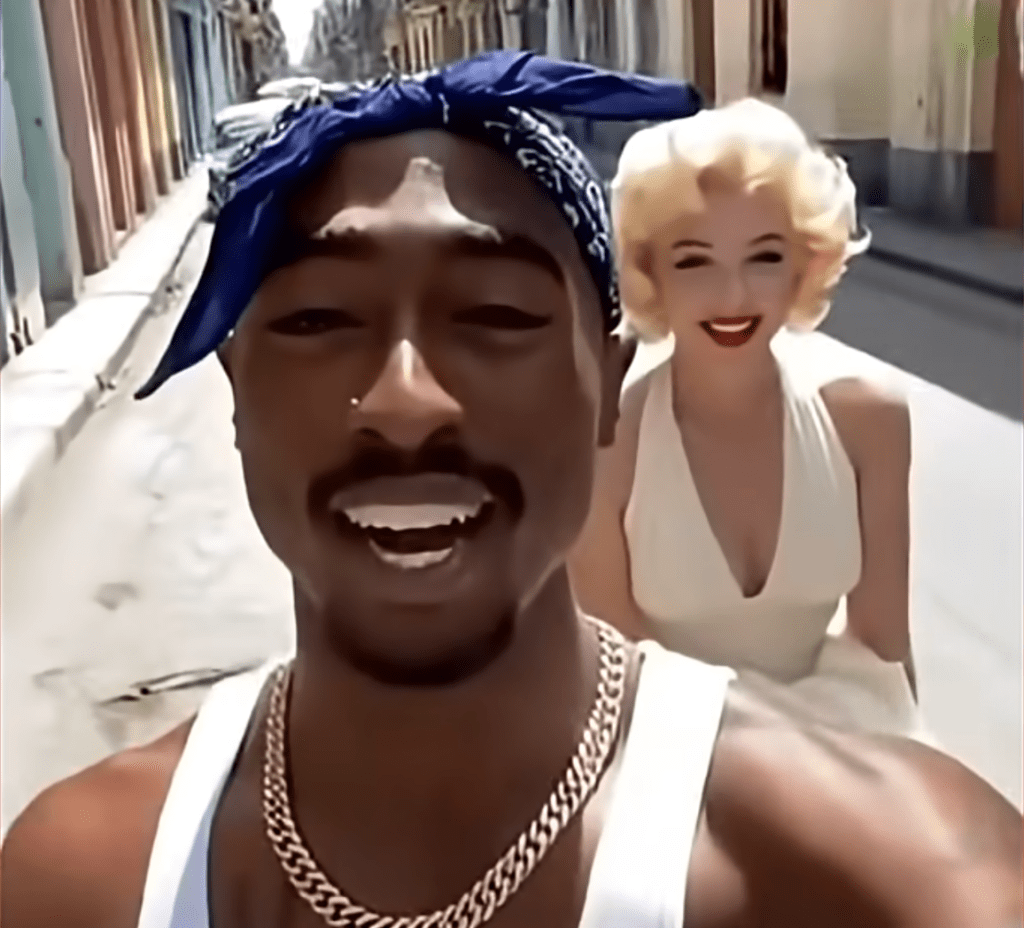 A frame from one of several Sora clips depicting Tupac Shakur in Cuba. So_True_Media_1/OpenAI Sora
A frame from one of several Sora clips depicting Tupac Shakur in Cuba. So_True_Media_1/OpenAI SoraAs people worldwide explore OpenAI’s new Sora 2 video generation AI model (and mobile app) by turning text prompts and images into videos, various reports suggest that we’re already approaching what’s socially (and legally) acceptable.
Should you be able to put words in a person’s mouth? What if they’re famous? What if they’re no longer living? What if those words—or indeed, actions—are unnatural, unsavory, or hateful?
From a policy standpoint, OpenAI
prohibits the creation of videos depicting living public figures without consent. So-called historical figures are a different story.
With Sora, Tupac Shakur is still alive in Cuba, Lisa “Left Eye” Lopes is moonlighting as a professional wrestler, and Steve Irwin is stabbing the stingray that killed him with its own barb.
It’s not always humorous. Per the
Washington Post, clips of Malcolm X show the civil rights activist “making crude jokes, wrestling with the Rev. Martin Luther King Jr. and talking about defecating on himself.” Yikes.
Unsurprisingly, the families of deceased celebrities caught in the crossfire—those of Malcolm, MLK, Bob Ross, Robin Williams, and others—aren’t loving it.
“Please, just stop sending me AI videos of Dad,” Zelda Williams, daughter of Robin,
wrote last week on social media, adding: “It’s NOT what he’d want.”
—AN